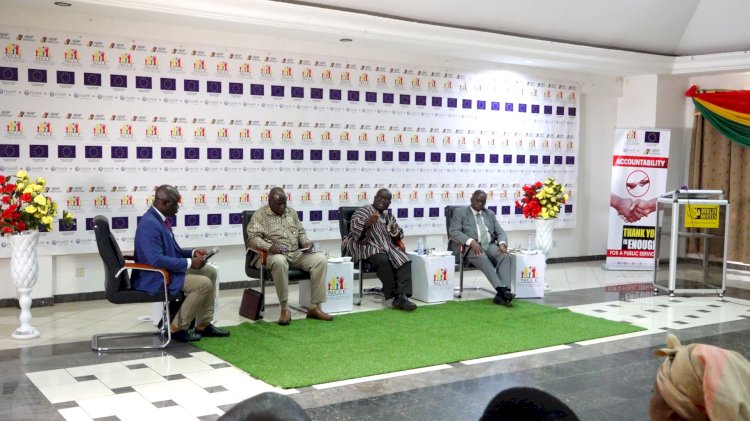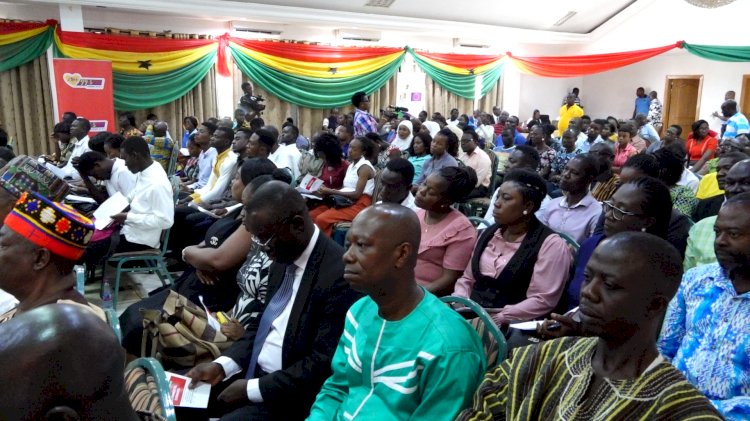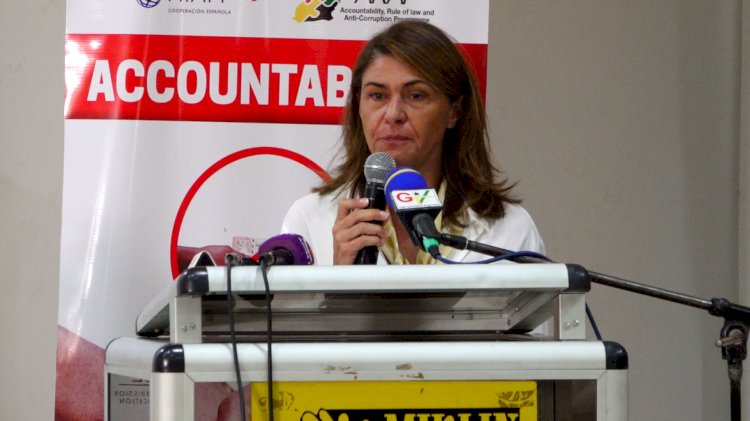ARAP Hold a third National Dialogue Conference on Environmental Governance
ARAP objective as an organization to reduce corruption and improve accountability and respect for the legal structures also acts as a support programme for central government, but crucially has a wide coverage across the nation. They also ensuring that both men and women’s voices are heard.

The Accountability, Rule of Law and Anti-corruption Programme (ARAP) on Tuesday, September 24 2019, held it third National Dialogue on Environmental Governance at the Miklin Hotel in the capital city of the Ashanti Region.
The programme aided by the National Commission for Civic Education (NCCE), the International and Latin American Foundation of Administration and Public Policies (FIIAPP) and supported by the European Union (EU) highlighted on “Public Opinion of Corruption, Public Accountability and Environmental Governance in Ghana”.
ARAP objective as an organization to reduce corruption and improve accountability and respect for the legal structures also acts as a support programme for central government, but crucially has a wide coverage across the nation. They also ensure that both men and women’s voices are heard.
With Environmental governance a key part of their goals, the fight for the ecology and the need to implement and effect environmental laws was needful in their third gathering in Kumasi. Three key environmental concerns; illegal mining, deforestation and noise pollution, among several others was the focus area in their speech.
Addressing the gathering was Mrs. Josephine Nkrumah, Chairperson of the National Commission for Civic Education (NCCE) on the challenges that sponsor these environmental distresses. She outlined the possible cause of the misfortunes and debriefed the gathering on what they think needs to be done to halt the challenges.
“What is it that causes these challenges? Is it ignorance, is it impunity, is it the lack of proper implementation of policy or the proper implementation of the legal framework? I believe these are some of the issues that will inform some of the discussions we have today," she said.
She opened up on the role, which the various stakeholders of the environment including the government, policy makers, businesses, traditional rulers who are custodians of the land, faith base organizations who believe that God gave us this environment for protection, youth and individuals need to do to save the environment for posterity. She urged attendees to re-examine their daily routines and begin to be more sensitive to their roles in making the environment a sustainable one.
“Our research on public opinion on corruption, public accountability and environmental governance in Ghana as was conducted a couple of years ago sees to inform how NCCE tailors our education on the pillars of ARAP and today is one such activities,” she revealed.

Citizens feedback on key environmental concerns based on findings ranked illegal mining, deforestation and noise pollution 2nd, 4th and 13th respectively out of 15 other environmental concerns raised. 39 percent of the respondents mentioned illegal mining as their environmental concern. Three percent (2.7%) indicated deforestation while 0.3% specified noise pollution as their concern.
The Head of the European Union Delegation to Ghana, Anna Sanches congratulated the initiative by the NCCE and informed that the United Nations Climate Action Summit carried out in New York under the real International ARAP disclosed the danger at which the earth is facing by which all the International Communities are claiming for effective measures beyond the general policies to be implemented in Environmental governance. She counseled the various legal bodies in Ghana to effectively apply laws to protect the environment.

Respondents in order to improve the institutional reaction to the environmental concerns gave varied suggestions which include providing the institutions mandate to manage the environment with modern equipments and facilities, building the capacity of these organizations to enhance the competence of the institutions as a whole to execute their task more effectively.
Recruitment of adequate and competent staff to work effectively was also brought on board at helping to carry out the organization's mandate. A concern was raised for political interferences to be reduced in the work of the institutions as the Public Service Commission were discussed to be given the authority to appoint heads of these institutions.




































